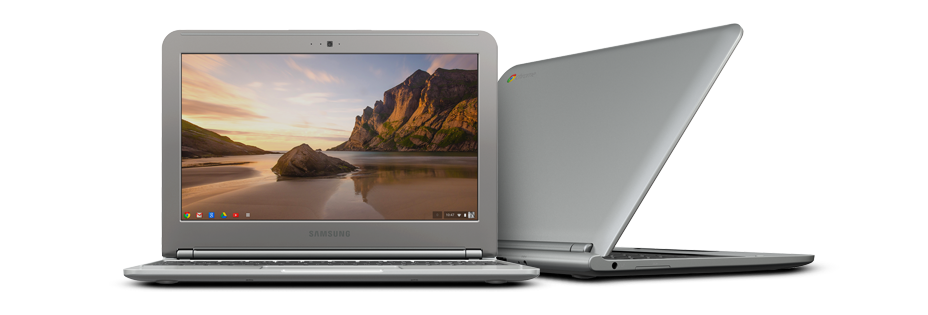
Chromebooks going back to school in new ad
Google is making an ever increasing amount of inroads with the education sector. Chromebooks have been finding new homes in many schools over the past year, with institutions either purchasing the devices for students or requiring them to attend with one.
Google is not above taking advantage of this momentum by using it in new advertising, and is doing exactly that with a new video that seems made for TV.
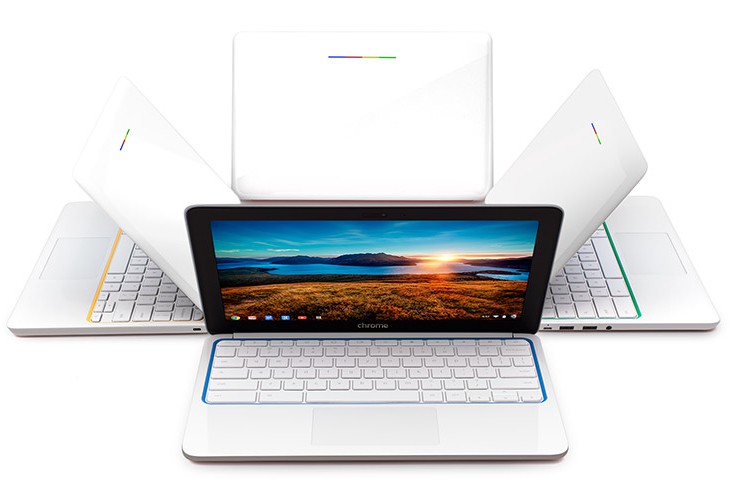
The technology I'm using this summer [Alan]
It seems all of us have made some switches thanks to warm weather here in the northern hemisphere, where summer is in full swing. Working outside seems prevalent, and that means, in many cases, an entirely different set of hardware.
I, for one, make my porch my office when the weather gets nice, and to do so means certain sacrifices -- or does it? As it turns out, not so much. I'm managing just fine with what I am using, able to get the job done with only the very rare exception that forces me to flee to my (rather baking) third-floor office to use a Windows computer.
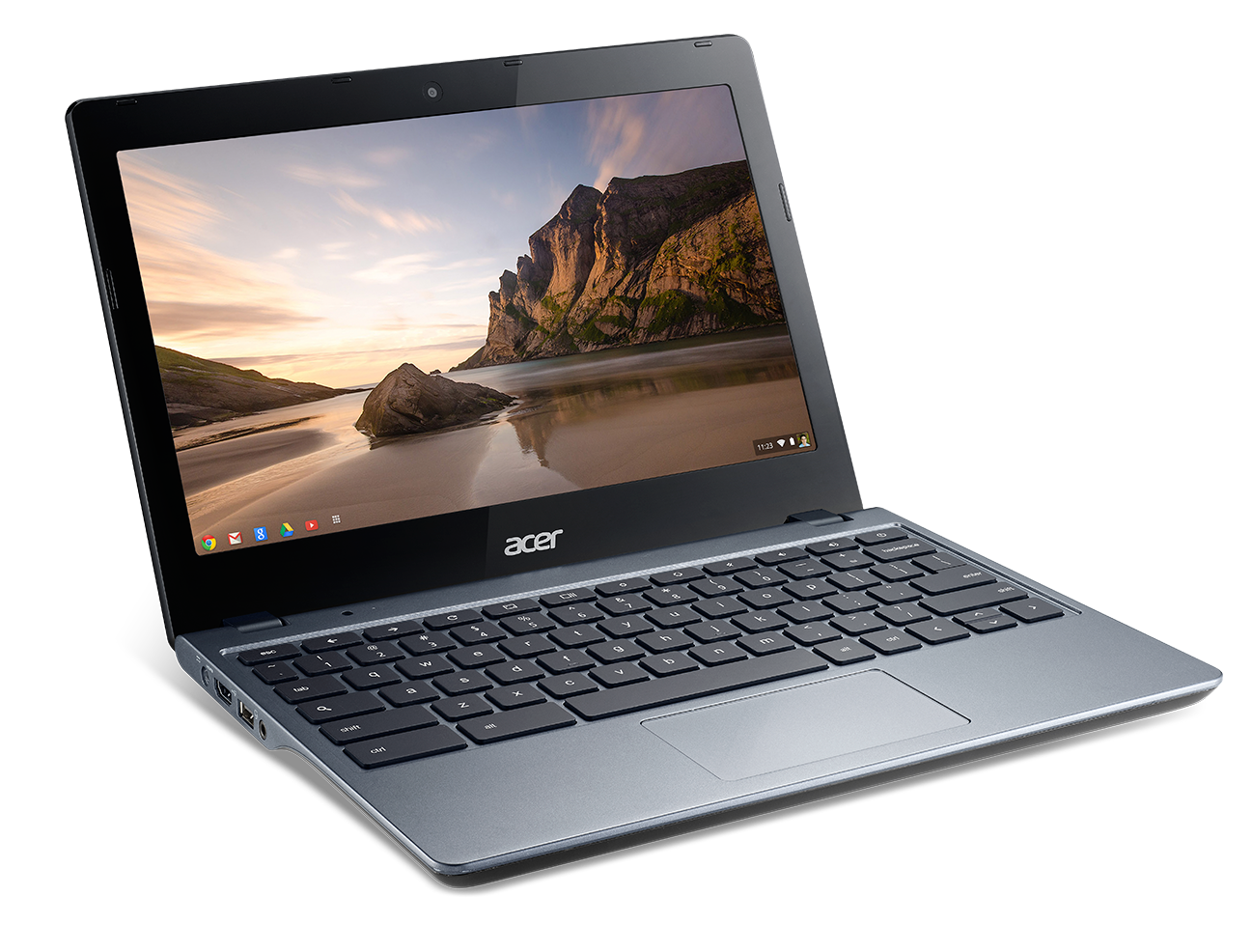
Chromebook shipments continue to rise, Acer leads the way
Google's Chromebooks have been making inroads as of late. Many schools have been adopting the platform, and there have even been stories of businesses moving over after the death of Windows XP. The latest numbers released show that this trend is continuing.
TrendForce reveals that shipments of Chrome OS devices have risen to 1.8 million in the second quarter of 2014, with Acer leading the way, ahead of all other OEMs.

Chromebook kicks OS X and Windows out of school
Get ready for another rash of "Year of the Chromebook" stories. It isn't, but tongues will wag. Today, NPD released new data about U.S. commercial computer sales which, like the last set, is sure to be misquoted. Spurred by educational buying, Chromebooks accounted for 40 percent of U.S. commercial channel notebook sales for the three weeks ended June 7. But some nitwits are sure to claim all sales, as they did following December's data drop. Commercial sales are more limited and represent those to businesses, educational institutions, governments, and other organizations.
That's not to diminish Chromebook's success, considering the category is but three years old and supplants OS X and Windows sales in the coveted education market. Users gotten young often stay with a platform for life. The browser-based computers aren't singular entities, either. Android and stand-alone Chrome platforms benefit, too, from halo sales going both ways.
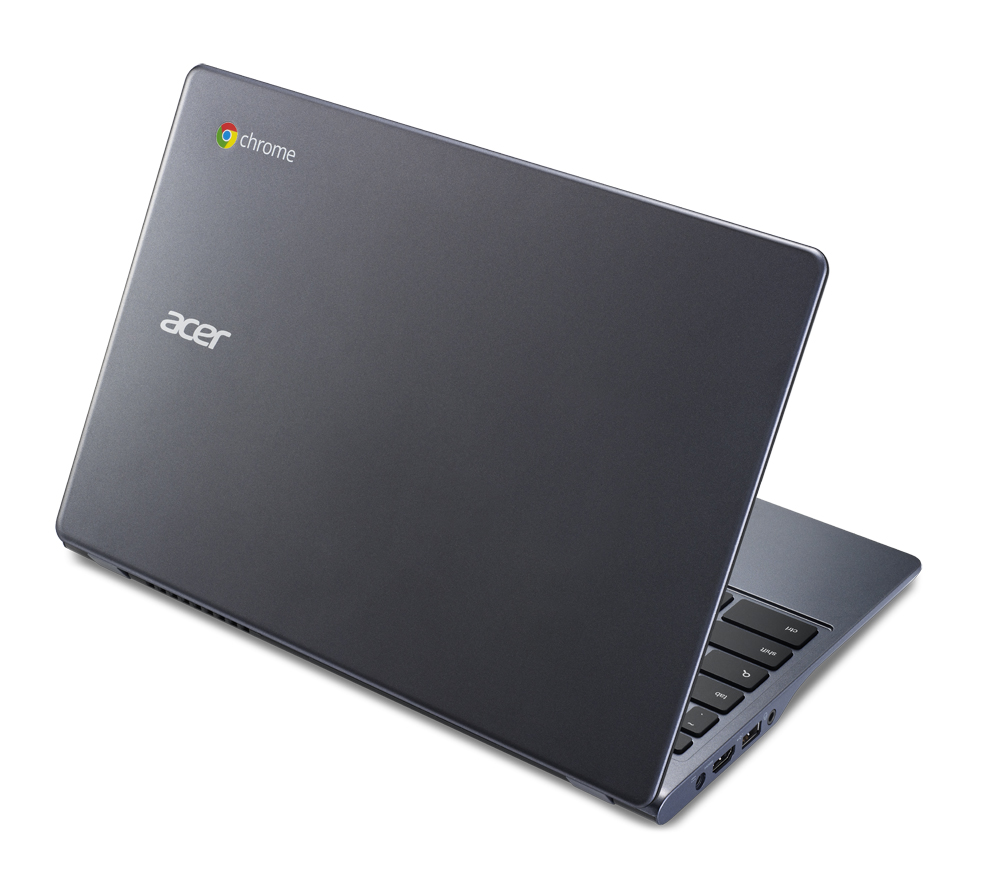
Acer releases new C720 Chromebooks -- first-ever to have Intel Core i3 inside
Chrome OS is an awesome, albeit limited, Linux-based operating system. It is a pleasure to use for most things, including writing, but it is hard to use exclusively. Just recently, I needed a Windows machine to achieve root access on an Android tablet -- a Chromebook proved useless for this task (Surface Pro 3 saved the day).
My biggest complaint however, is not about the software, but the hardware. For some reason, manufacturers largely produce junk Chromebooks with ugly screens and 2GB of RAM. Believe it or not, there is a market for mid-range computers running Google's OS. Not everyone is just looking to Chromebooks as a way to save a buck. Today, Acer releases the world's first Core i3 Chromebook, featuring 4GB of RAM as an option. This may be the Chromebook we've been waiting for!

PC shipments show strong growth in USA -- global decline slows
The most popular computers nowadays, mobile devices such as smartphones and tablets, are full of compromises. Sure, they are sexy and fun to use, but hardly ideal for true work and creation. Hell, the "smart" in smartphone is starting to feel like a misnomer. A true desktop operating system coupled with a laptop, desktop or hybrid form factor will offer the most functionality and success.
Consumers have overlooked these mobile shortcomings as they have been mostly consuming content at home. However, the tides may be changing -- it feels like the consumer love-affair with mobile devices is starting to wane. Smart-watches may be the straw that breaks the camel's back. People are tired of retrofitting their desired computing to small screens. How about using an actual PC, rather than try to get PC functionality from a mobile device? Crazy concept, I know. Today, IDC announces that PC shipments are showing strong growth in the USA for Q2 2014, year-on-year.

Chesterfield County Schools buys 32,000 Dell Chromebooks for students
The battle for the classroom is heating up more and more every day. Lately, it feels like Google and Microsoft are fiercely going at each other in an attempt to capture precious education market share. This is beneficial for schools, as competition should lead to more affordable technology for students. Arguably, schools really can't go wrong either way -- both Chromebooks and Windows laptops (including Surface) offer very rewarding experiences.
Today, Google announces that it convinced the Chesterfield County Schools in Virginia to buy 32,000 Chromebooks. While this is a major score for Google, it is more importantly a big win for students. But, did the school make the right choice?

HP Chromebook 11 without Google is less appealing
Let me start by thanking HP public relations for quickly responding to my information request, even after my warning the story would likely be ugly -- and it is. Today, the company unveiled a new Chromebook 11 model that is less than the original. As widely-rumored last month, the beautiful, 300-nit, IPS display with wide viewing angles is gone. "It’s an 11.6-inch screen with standard display technology", according to HP. That means dimmer and duller.
HP designed the first Chromebook 11 "With Google", which is branding appearing on the computer's underside. The laptop without Google matches the look of the 14-inch model, adopts similar fantastic keyboard, reduces display quality, and keeps the same aged ARM chip and puny 2GB of memory. The panel and processor choices perplex. If I had to choose between the original, which I reviewed in October, and its successor the choice is simple: Last year's model, which debuted at $279 and is available from Amazon for $225. The newer Chromebook 11 lists for $279 and sales start next month. Even if priced the same, I would choose the original.
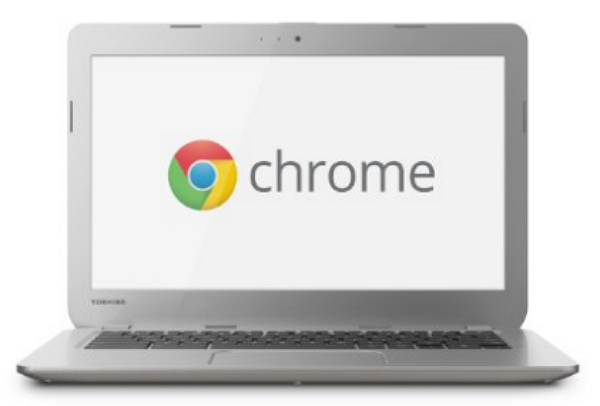
Google launches Chromebooks in nine more nations
Last week I mentioned that I've been working from a Chromebook recently, in this case an HP 11. However, folks in other nations are not all so fortunate, as the platform is not yet available everywhere. That's something that Google would like to change, for both the benefit of itself and consumers.
Today nine more regions were checked off the list with a poetic announcement from Google's David Shapiro, who is director of Chromebook marketing.
My two years with Chromebook
Colleague Alan Buckingham is on a summer sojourn using HP Chromebook 11. I took similar journey during August and September 2011, but the Samsung Series 3 Chromebook -- much as I liked the overall user experience -- couldn't satisfy my needs. In May 2012, with Samsung Chromebook Series 5 550's release, all changed. I started down a permanent path, looking back once for a few weeks. I am a Chromebook convert and eagerly watch to see where Alan will be when the summer sun fades to autumn colors.
"Can I use Chromebook as my primary PC?" It's a question I see often across the Interwebs. The answer is different: You can use Chromebook as your only computer. The only PCs in my home are Chromebooks. There are no Macs or Windows machines doing double duty. Chromebook is more than good enough. Most people will be surprised just how satisfying Chromebook can be -- and how affordable. For 96 cents more than the cost of one entry-level MacBook Air, you can buy from Amazon four HP Chromebook 11s -- the model Alan uses now. User benefits are surprisingly similar.

I am working exclusively from a Chromebook -- here's how and why
Despite that I've owned an HP 11 Chromebook since its release, I've viewed it as little more than a novelty. I work from an office on the third floor of my home, which has a nice size desk, desktop PC and 15.6 inch laptop, both running Windows 8.1.
However, as the weather warms (finally!) I considered making the move out to my porch, something I did last summer as well. In that case I lugged the Windows laptop with me, not a difficult task, but the size is really more than I need for carrying around.
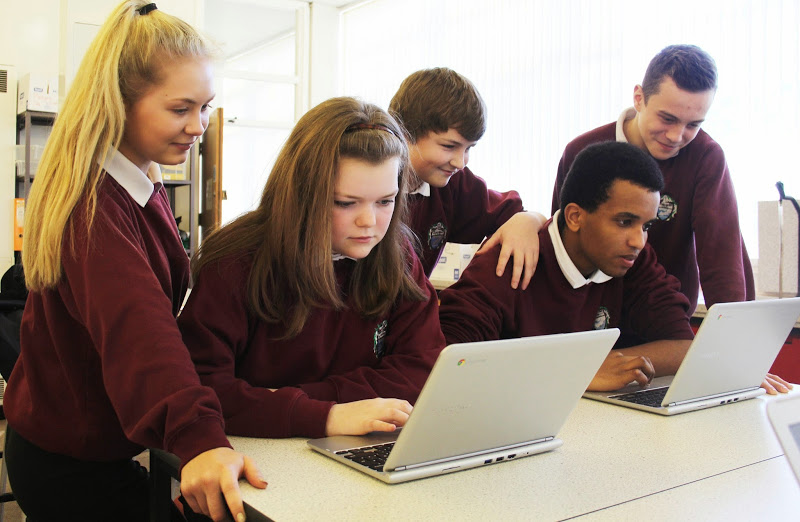
Google invades Wales, gets Chromebooks into schools
Google yn dod i ysgolion Cymru. Google continues to battle Windows and Office 365, trying to get its own products adopted in the market, focusing on education, business and governments. And Chromebooks have made inroads in this area.
Now the search giant announces it has scored a victory in Wales, bringing its platform to schools within the nation. "Around the world, schools are finding innovative ways to use technology to break down the traditional walls of the classroom, while overcoming the challenges of higher academic standards and tighter budgets. Today, we’re pleased to share the stories from two schools in Wales who’ve gone Google to help them meet the demands of a modern-day education system" says Liz Sproat, head of education at Google.
Say, Google, save Chromebook from Intel while you still can
PC manufacturers' priorities baffle me. For years I bitched about OEMs shipping laptops with low-resolution screens -- even Apple. Sony is, or was, the exception but offering the feature for a price premium. My first 13.3-inch notebook with HD resolution (1600 by 900) was a VAIO. In 2006! Apple only followed the Japanese company six years later. The screen is the gateway to your computer, so why do so many OEMs ship cheap displays? For Macs and many Windows PCs, panels are brighter, if not higher-res, today. But not Chromebooks, even as prices push against the $299 threshold and pop above it.
Yesterday's Intel-Google event was an eye opener, or perhaps eye-strainer for anyone looking for Chromebooks with better screens. During the Q&A, PC execs dodged a couple questions about the displays, the majority of which are 1366 x 768 resolution and dim 200-nit brightness. Resolution matters less when panels are bright and deliver consistent color and contrast from wide viewing angles. Chromebooks consistently ship with the best keyboards on any laptop for any price, and the trackpads are exceptional, too. The displays suck. Only two models are good enough. Most newer models change nothing.

Google-Intel Chrome OS event
In San Francisco, Google and Intel kick off a special event for Chrome OS, which I assert is come of age with the matchup. Ahead of the 1 pm Eastern start time, Lenovo announced new Chromebooks and Google unveiled "Classroom", preview of a new education app.
Unquestionably, Chrome OS-devices are primed for the education market, and many of the newest Chromebooks are directly marketed for schools, students, or teachers. Dell jumped ahead of today's event touting Chromebook 11 adoption in schools.
Chrome OS comes of age
Today's Google-Intel event is a turning point for Chrome OS. The matchup is more magnanimous than Apple shipping the first x86 Macs eight years ago. Intel is after all the other half of Wintel, and the company's coming out for Chrome OS endorses the browser-based operating system as mainstream -- as do a rash of new Chromebooks announced or released over the past month by Acer, Dell, Lenovo, and Samsung.
Chrome OS has huge momentum in the education market, for example. There are news stories about school conversions nearly every week. Those are sales taken away from Apple or Microsoft platforms. Success is shocking, because every new operating system directly competing with Windows has failed since release of version 3.1 two decades ago. The Microsoft monopoly is insurmountable, or was until Google's entrance.
